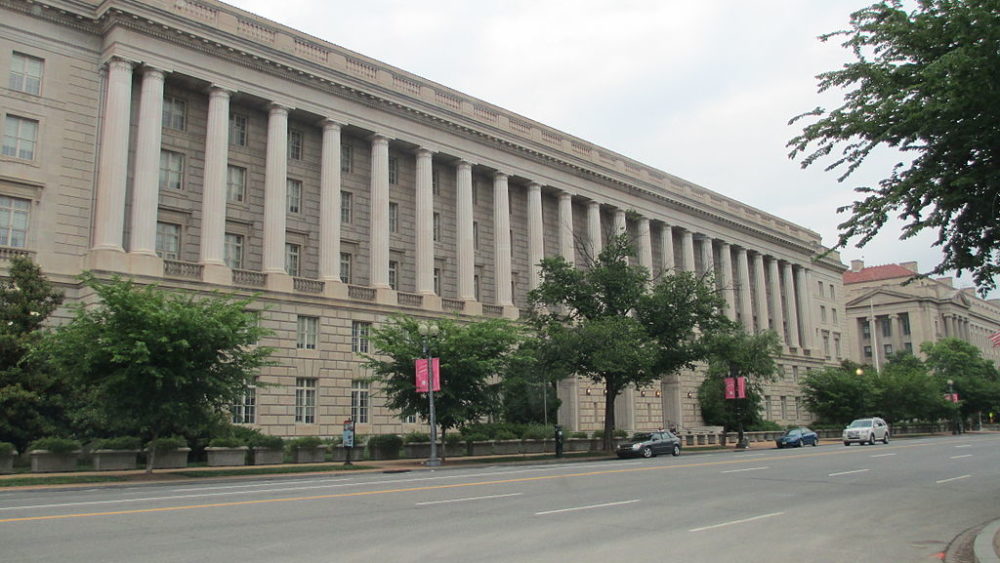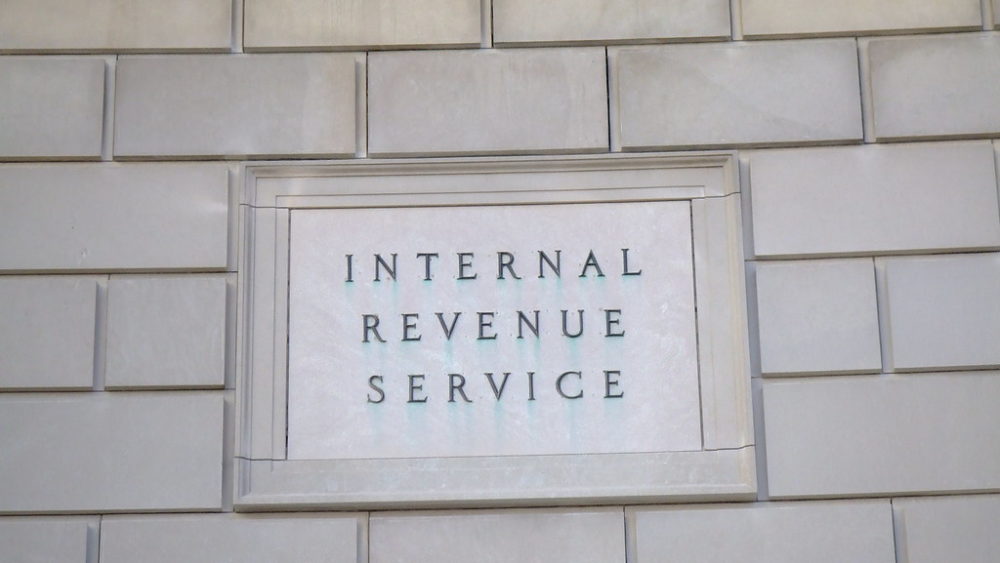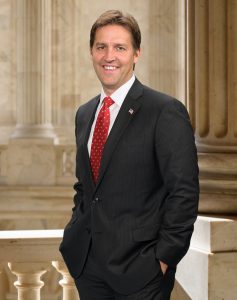
Home of the Internal Revenue Service - by Joshua Doubek
On May 28, new Internal Revenue Service (IRS) regulations allowing certain tax-exempt organizations to refrain from reporting the names and addresses of contributors on their annual reports to the IRS will take effect and be published in the U.S. Federal […]
On May 28, new Internal Revenue Service (IRS) regulations allowing certain tax-exempt organizations to refrain from reporting the names and addresses of contributors on their annual reports to the IRS will take effect and be published in the U.S. Federal Register.
This exemption from reporting applies to tax-exempt organizations generally not receiving tax-deductible contributions, such as labor unions, volunteer fire departments, issue-advocacy groups, local chambers of commerce, veterans’ groups, and community service clubs. These organizations are still required to continue to collect and keep the donor information and to make it available to the IRS upon its request. This change does not affect the information required to be reported by charities primarily receiving tax-deductible contributions, such as 501(c)(3) organizations, certain nonexempt private foundations, or 527 political organizations.
The Treasury Department and IRS had given three primary reasons for the change: the IRS makes no systematic use of this information collected by these organizations; the policy reduces the risk of inadvertent disclosure or misuse of confidential information; and the policy saves both private and government resources.
Previously, the IRS had issued a guidance to this effect, but on July 30, 2019, the IRS guidance limiting these disclosure requirements was set aside by a federal judge. In Bullock v. IRS, the U.S. District Court District of Montana (Great Falls) found the IRS violated the Administrative Procedure Act by not providing notice and allowing a public comment period before the guidance was issued. It predicated this decision by finding the guidance was a legislative rule. Subsequently, on September 6, the IRS issued a notice of a proposed rulemaking and accepted public comment.
September 11, 2019 •
IRS Moves Again to Exempt Certain Tax-Exempt Organizations From Reporting Contributor Info

Photo Credit: saturnism
On September 6, the Internal Revenue Service (IRS) issued a notice of a proposed rulemaking for allowing certain tax-exempt organizations to no longer be required to report the names and addresses of contributors on their annual reports. Previously, the IRS […]
On September 6, the Internal Revenue Service (IRS) issued a notice of a proposed rulemaking for allowing certain tax-exempt organizations to no longer be required to report the names and addresses of contributors on their annual reports.
Previously, the IRS had issued a guidance to this effect, but on July 30, the IRS guidance limiting these disclosure requirements was set aside by a federal judge.
In Bullock v. IRS, the U.S. District Court District of Montana (Great Falls) found the IRS violated the Administrative Procedure Act by not providing notice and allowing a public comment period before the guidance was issued. It predicated this decision by finding the guidance was a legislative rule.
On July 16, 2018, the U.S. Treasury Department and the IRS had announced certain tax-exempt organizations would no longer be required to report the names and addresses of contributors on their annual reports. This exemption from reporting applies to tax-exempt organizations generally not receiving tax-deductible contributions, such as labor unions, volunteer fire departments, issue-advocacy groups, local chambers of commerce, veterans’ groups, and community service clubs, according to the department’s press release.
These organizations are still required to continue to collect and keep the donor information and to make it available to the IRS upon its request.
This change did not affect the information required to be reported by charities primarily receiving tax-deductible contributions, such as 501(c)(3) organizations, certain nonexempt private foundations, or 527 political organizations. The Treasury Department and IRS had given three primary reasons for the change:
-
- The IRS makes no systematic use of this information collected by these organizations
- The policy reduces the risk of inadvertent disclosure or misuse of confidential information
- The policy saves both private and government resources
Comments on the proposed rule will be accepted for 90 days after the notice’s publication in the Federal Register.
September 18, 2018 •
Sen. Sasse Introduces Five Federal Ethics Bills
On September 17, Sen. Ben Sasse introduced five federal ethics bills in the Senate, including Senate Bill 3454, the Congressional Revolving Door Ban Act, which would create a lifetime ban on members of Congress leaving office to become federal lobbyists. […]
 On September 17, Sen. Ben Sasse introduced five federal ethics bills in the Senate, including Senate Bill 3454, the Congressional Revolving Door Ban Act, which would create a lifetime ban on members of Congress leaving office to become federal lobbyists.
On September 17, Sen. Ben Sasse introduced five federal ethics bills in the Senate, including Senate Bill 3454, the Congressional Revolving Door Ban Act, which would create a lifetime ban on members of Congress leaving office to become federal lobbyists.
Senate Bill 3452, the Cabinet Service Integrity Act, prohibits cabinet members and their immediate family from soliciting contributions from a government of a foreign country, a foreign political party, or any entity owned or controlled by a government of a foreign country or foreign political party.
Senate Bill 3451, the Congressional Anti-Corruption Act, prohibits members of Congress from buying or selling individual securities while in office.
Senate Bill 3453, the Congressional Workplace Misconduct Accountability Act, creates a public database of U.S. Congressional human resources settlements and increases the personal financial liability for members of congress.
Senate Bill 3450, the Presidential Tax Transparency Act, requires a presidential and vice-presidential candidates’ tax returns be disclosed by the Internal Revenue Service.
Sasse said he intends the legislation to be “big and disruptive and uncomfortable for Washington, D.C.”, according to his press release.
Applications for tax-exempt status of charities filing under section 501(c)(3) of the tax code are now quicker and easier for as many as 70 percent of all applicants, says the IRS. According to an IRS press release, organizations with gross […]
 Applications for tax-exempt status of charities filing under section 501(c)(3) of the tax code are now quicker and easier for as many as 70 percent of all applicants, says the IRS.
Applications for tax-exempt status of charities filing under section 501(c)(3) of the tax code are now quicker and easier for as many as 70 percent of all applicants, says the IRS.
According to an IRS press release, organizations with gross receipts of $50,000 or less and assets of $250,000 or less are eligible to use a new three-page application form. The standard form is 26 pages.
IRS Commissioner John Koskinen said, “It didn’t matter if you were a small soccer or gardening club or a major research organization. [The standard form] process created needlessly long delays for groups, which didn’t help the groups, the taxpaying public or the IRS.” According to the IRS, the new shorter form will “speed the approval process for smaller groups and free up resources to review applications from larger, more complex organizations while reducing the application backlog.”
There is a concern groups not having true charitable purposes may use the tax-exempt status to make political contributions without having to reveal the original source of the funds. In a TIME magazine article published July 13, Koskinen dismissed the idea that “if someone has been forced to do more paperwork they’re going to be less nefarious.”
State and Federal Communications, Inc. provides research and consulting services for government relations professionals on lobbying laws, procurement lobbying laws, political contribution laws in the United States and Canada. Learn more by visiting stateandfed.com.

